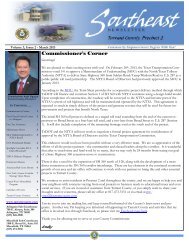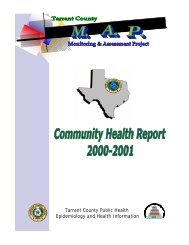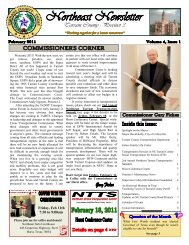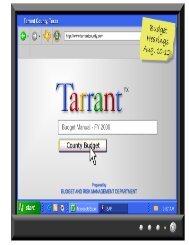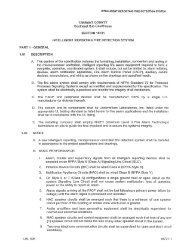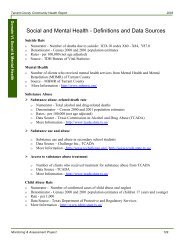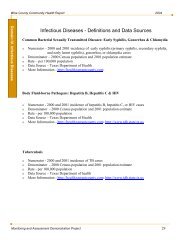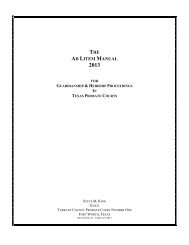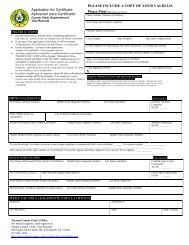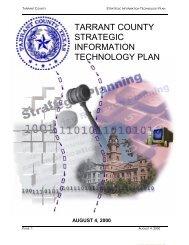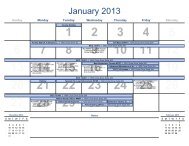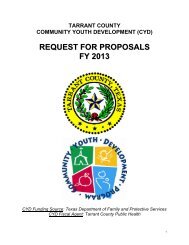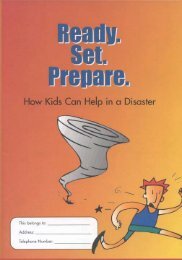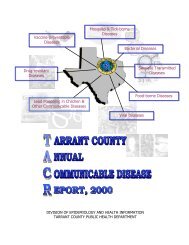MAPP Handbook - The National Association of County and City ...
MAPP Handbook - The National Association of County and City ...
MAPP Handbook - The National Association of County and City ...
Create successful ePaper yourself
Turn your PDF publications into a flip-book with our unique Google optimized e-Paper software.
Tip Sheet 7:<br />
CONDUCTING A COMMUNITY DIALOGUE<br />
Content <strong>of</strong> the Dialogue<br />
A trained facilitator will broadly frame the focus <strong>of</strong> the group <strong>and</strong> help important<br />
themes <strong>and</strong> issues to emerge. For instance, a dialogue around quality <strong>of</strong> life issues or<br />
the mapping <strong>of</strong> community assets may stimulate participants’ ideas <strong>of</strong> community assets.<br />
Through discussion, participants will be able to identify areas <strong>of</strong> agreement <strong>and</strong><br />
disagreement. As new insights emerge, they should be captured <strong>and</strong> clarified.<br />
Follow-up <strong>and</strong> Sustaining the Dialogue<br />
Sustain the dialogue over time by using sign-in sheets to facilitate follow up, summaries<br />
<strong>of</strong> brainstorming or other types <strong>of</strong> sessions, <strong>and</strong> possible outside information sources.<br />
For example, the Community Health Status Assessment may reveal some data that is<br />
surprising to the community <strong>and</strong> having that data clearly available in a timely way will<br />
make the community dialogue more productive. In all likelihood, this responsibility will<br />
fall to a lead agency or community partner at the outset, but as the process continues,<br />
the participants will increasingly assume this role.<br />
TIP SHEET 7<br />
117



